
Episode 046: Jo Saxton Spotlight


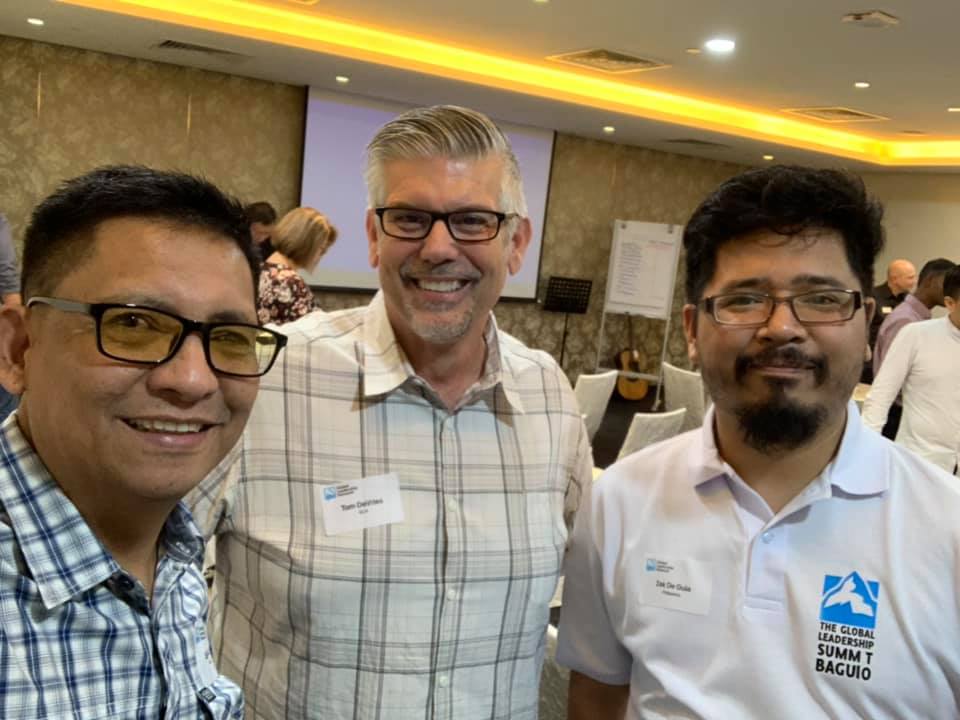
Have you ever wondered about the person who leads the Global Leadership Network (GLN)? This is part two of our two-part blog series to learn about Tom De Vries, President of the GLN. (Click here to view part one)
There are two surprises.
One is that God can use anybody. We can choose to discount people because they may not fit a particular mold we have of a leader, but the reality is, if you believe in people, give them an opportunity. Set them up for success, and they often can do far beyond what you think they could ever do.
Leadership is giving them the freedom to exercise what they believe is the direction to go and having the maturity to allow them to go beyond what you were able to do
And a corollary to the fact that God can use anybody, is recognizing people aren’t going to do things the same way you do them. As you coach and mentor young leaders, you need wisdom and maturity to allow them to figure things out on their own. They need to fail as part of their learning experience. Leadership is giving them the freedom to exercise what they believe is the direction to go and having the maturity to allow them to go beyond what you were able to do.
This happened early on when we hired our first youth pastor. I had been a youth pastor when I was in seminary. I had also led a fairly significant college group, and before that, I had been a high school pastor. So, when I hired our youth pastor, I remember this point of decision, Am I going to let John do what John can do, or am I going to expect John to do what I did?
I was very cognizant to say, Let’s let him do what he’s gifted and called to do. And what he did far exceeded what I had done. It was an early leadership lesson for me around extending freedom to fail or succeed.
My dad died my senior year of college. When that happened, I looked to other people for wisdom, input, growth opportunities and safety to ask questions. I’ve had mentors and coaches my entire life. It is a priority of mine to make space to sit down with leaders and influencers who’ve gone before me.
Leaders ultimately give their leadership away.
I’ve had people in my life who were very selfless and cared for my growth; they invested in me as a young leader and sponsored me into positions where I could grow and have a certain degree of leadership effectiveness. Their willingness to have an hour or two hour-long conversation on a monthly basis was empowering. There was one guy I would drive three or four hours for each way just to have lunch with him. I would return to see him each month because I knew I needed to grow, and he was helping me.
Leaders ultimately give their leadership away. They are willing to sit down and let other succeed. That’s the corollary too–as you empower people around you, the amazing thing is that it reflects on you and your leadership in ways that you would never expect.
The higher you go in leadership, the larger the problems you’re going to face; the larger the problems, the greater the complexity and resistance.
There was a time when I was ready to quit. I came to those monthly accountability meetings with my friends and partners, and every month, I had nothing good to say. But they kept praying for me and encouraging me. In the midst of that I was able to push through, and God used it for my own growth.
There are going to be times of significant pain and push-back, when you’re questioning what you’re supposed to do.
If you move into a role because you think it’s the next rung on the ladder, or the next notch in your career, that’s not compelling enough to be able to help you navigate during the difficult times. There are going to be times of significant pain and push-back, when you’re questioning what you’re supposed to do.
During each transition, I’ve gone away for a day or two to spend significant amounts of time in prayer, biblical reflection and journaling. In the end, whether my decision was to say yes or no, I was fairly confident and had a sense of God’s leading.
For me, because I have an anchor point through those quiet times of discernment, I know that when I’m in the position I’m in, it’s not by accident. I’m not here because of a whim or a decision that I just made. Being anchored by a sense of God’s leading allows me to weather those inevitable storms. Those anchor points and journeying with a group of fellow leaders who hold me accountable in the midst of that is significant.
I remember when God led me to John 15, and I understood the significance of the vine and the branches. In that passage, Jesus says, apart from me you can do nothing. I realized the importance of being plugged in as a branch and the significance of the fruit we bear. I go back to John 15 again and again; I’ve read through it, journaled through it and prayed through it during seasons of transition. It’s a definite anchor point for me.
For me this is the place of humility. In 2 Corinthians, God uses cracked pots—vessels of honor and dishonor—there are ways, even in our weakness when God is able to use us.
In 2 Corinthians, God uses cracked pots—vessels of honor and dishonor—there are ways, even in our weakness, when God is able to use us.
Looking back over my life, I’m humbled by the times I’ve been able to speak into someone’s life and see transformation. Sometimes that change was significant, even eternal. Having the opportunity to lead someone into a relationship with Christ again and again has been powerful. I’ve also walked with men who failed in their marriage but wanted to find help and make it right. I’ve been able to walk with them into a place of restoration. It’s incredibly powerful.
Starting a non-profit to provide backpacks to kids was awesome to be a part of. Through a woman who had a passion, vision and commitment to lead, now there are over 5,000 kids getting food every week and 100 churches partnering with about 150 schools. I look back and get to say I was a part of that. What’s happening is significant.
It’s incredible to see a church continue to do transformative ministry today because we were a part of it when we had no idea what was going to happen. But God knew.
 Recently I was in Singapore with our Asian country leaders for the Summit. We heard them talk about what the Summit means to them, especially in light of what just occurred in Sri Lanka. (NOTE: On Easter 2019, three churches and three hotels in Sri Lanka were targeted in a series of terrorist suicide bombings.)
Recently I was in Singapore with our Asian country leaders for the Summit. We heard them talk about what the Summit means to them, especially in light of what just occurred in Sri Lanka. (NOTE: On Easter 2019, three churches and three hotels in Sri Lanka were targeted in a series of terrorist suicide bombings.)
In this community, we are able to be engaged in their healing and grieving. I also had a chance to be with our 70 Summit leaders in India. Each one of them came up to talk about how the Summit is making a difference in their village or their city of multimillions. They’re so grateful for our willingness to partner with them and journey with them and provide them with resources that allow transformation to happen.
It’s incredibly humbling to realize it’s not what we’re doing, it’s what God is doing through us. I’m open to wherever that is going to take us. I’m excited to see it multiply again and again.
Growing up in southern California, I became a rabid Los Angeles Dodgers fan! It’s something I loved as a kid and still do to this day. I loved playing baseball as a kid, in high school and college, and still have a huge affinity for the Dodgers.
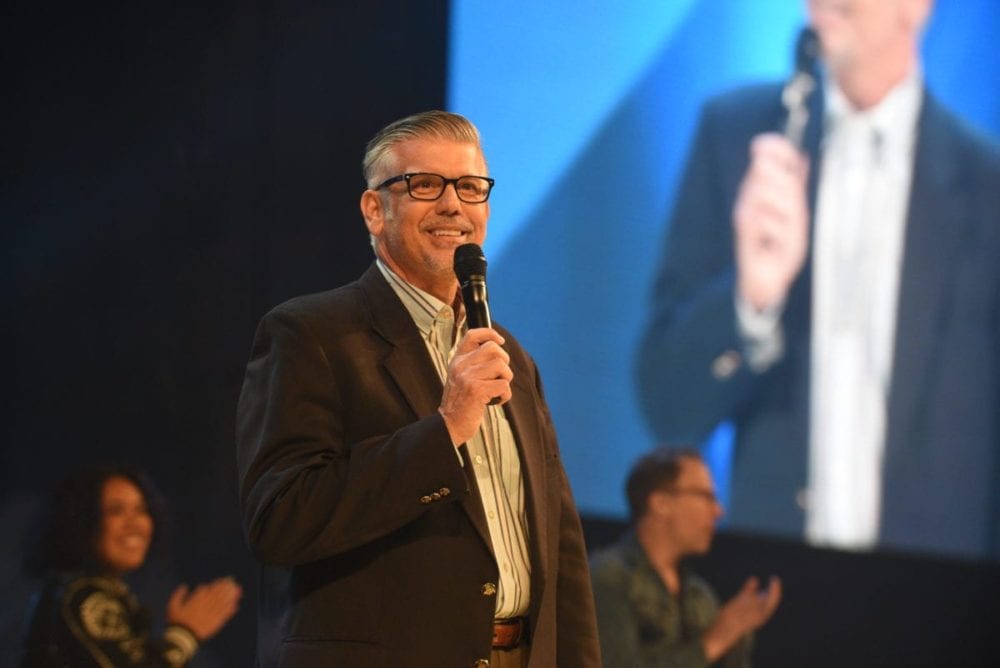
Have you ever wondered about the person who leads the Global Leadership Network (GLN)? In this two-part blog series, learn about Tom De Vries, President of the GLN. Learn about his first encounter with the Summit back in the 1990s—his leadership journey over the years, his fears and battles, his passion for leadership and what mentorship has meant to him.
The first time I came to the Summit was in 1996—it was their second year. It really was a “wow” experience, especially in the area of leadership, which was a passion of mine. My experience at the church and at the Summit carried over as I went to seminary and then back home to plant a church in southern California, where I grew up. Our vision for our church was really influenced by the idea to reach people who didn’t grow up in the church and who had a lot of spiritual questions.
My worlds collided when I connected with the group that was responsible for putting forward people who would be the future president and CEO to follow in Gary Schwammlein’s footsteps.
The role has a connection with my past, certainly with my present and also with my future and passion.
The role has a connection with my past, certainly with my present and also with my future and passion. I really have a heart for the global vision of the Summit, both from the side of growing the Church around the world to being able to raise leaders who serve in significant ways and to minister in business, education and government sectors. When they offered me the opportunity, my wife and I prayed through it, and really believed God was leading us this way.
If you raise up someone’s leadership level, it makes a transformative difference in their life and their environment—and this can happen anywhere. It can happen in the life of a mom, school teacher, the president of a country, a business leader and certainly in the life of a pastor or church planter. Often people get a whole new vision of what God wants them to do to live out compassion and justice in the world. If you add leadership to the equation, it raises their level of influence. The Spirit of God works in those grander visions. The Summit equips people with resources, encouragement and inspiration.
To come to work every day and hear a new story of transformation and growth and hear how the Summit has impacted lives is an awesome reason to get up in the morning.
To come to work every day and hear a new story of transformation and growth and hear how the Summit has impacted lives is an awesome reason to get up in the morning. I love to see God at work around the world.
Often, we think we have to be the authoritative or the chief leader, but it is out of our vulnerability, transparency and servant leadership posture where God does profound things. I discovered this early on as a very young, emerging leader.
Laura and I got married and moved out to Moreno Valley, California where we went to plant our church. I remember when we launched. There were maybe 100 people who were a part of the church at the time. John Maxwell was doing a conference in the town next door, so I brought a dozen people from our church to attend. John talked specifically to pastoral leaders on Friday night of the conference and said, I want you to be open, transparent and vulnerable about how you feel in regard to your leadership. We broke up into our groups, and here I am with our team thinking to myself, Am I really going to be vulnerable? Am I really going to be open? Or am I going to just give an easy answer, so we can move on?
The affirmation they gave me as a young leader sent me on a path to becoming the best leader I possibly could to ultimately live out the call of God on my life…
I decided to share my fears, anxieties and concerns. I looked around the circle and said, I’m 25. I’m really wet behind the ears. I really don’t know anything about leadership. I’m not sure I can be the leader you need me to be for our church. I’m not sure I can take us where we sense God wants us to go. I just need to admit that.
They came back and said, Tom, we believe that God has called you to be the pastor of this church. Because of God’s calling on your life and where you sense we need to go, we will follow. We believe you’re the leader for this time, this place and this opportunity. God has called us together to do something special. We’re behind you, we’re with you, we support you, we’re praying for you and we’re committed to what God wants to do in and through us together.
The affirmation they gave me as a young leader sent me on a path to becoming the best leader I possibly could be to ultimately live out the call of God on my life and with the people I was journeying with. I began to read everything I could, go to as many conferences as I could and work on leadership in a graduate school setting as well.
I have made significant decisions as a result of attending the Summit. Once in the late 1990s, I sat in the Summit on that first day pondering a position I had been offered to move from southern California to Michigan to oversee all of the church multiplication and revitalization for our denomination. While I was there, I had a sense of God’s prompting, you really need to do this. That opening to the next chapter of my leadership journey ultimately changed the trajectory of our lives.
The biggest takeaway from the Summit was recognizing leaders never arrive, no matter what level of leadership they end up in.
The leadership journey is a learning journey. The biggest takeaway from the Summit was recognizing leaders never arrive, no matter what level of leadership they end up in. It wasn’t a singular talk that was the biggest takeaway, it was being in an incubator to reflect on the things I was hearing, and how it applied to me. The immensity and the multiplicity of collective learning in teams has had a huge impact on whatever organization or situation I was a part of at the time too. It creates connection and coordination.
Leadership is complex, and sometimes even painful and lonely. I need inspiration and encouragement. I need to be equipped. I need to hear from thought leaders and those who have reflected on leadership academically. I need to hear from those who are leading in other environments and understand what some of the best and newest practices are that I can apply to my situation. The dynamic of leadership is moving and growing. Environment, people and culture continue to change, and as a leader, the Summit is a commitment to my continued growth in dynamic and evolving situations.
Discovering my calling was a journey. Much of my early growth included reflecting on my life purpose and articulating that to establish a decision grid to help live out that calling. I realized the first person you lead is yourself, and one of the first steps of leading yourself is knowing where you’re going. The best way to know where you’re going is to be open to the Spirit’s leading, identifying why God put you on this earth.
As I opened myself up to the Spirit as a young leader, what I heard God say is, Your life purpose is to be an influencer of influencers for Jesus Christ.
As I opened myself up to the Spirit as a young leader, what I heard God say is, Your life purpose is to be an influencer of influencers for Jesus Christ.
When I made the decision be part of the GLN, it was because it gives me the opportunity to live out my life purpose at the highest level. I know everything I do and every decision I make has a direct impact on helping grow people in their influence and in their leadership.
Right now, our desire at the GLN is to reach 500,000 people annually through the Summit and recognizing that each of those 500,000 people has circles of influence that are multiplied. Over the next few years, what would it look like to reach 1 million? How many are they going to influence? Inspiring and equipping 1 million people with world-class leadership may have direct impact on over 100 million people. It’s profound.
This vision comes out of my life calling and is consistent with what God has asked me to invest my life in for His glory.
[Long pause]. I pause because I have so many. I developed an understanding as a leader where I don’t just say, let’s take that hill and think everybody is going to follow me. The challenge is bringing unity where things have been fractured and un-unified so that we can all go together. Having been in that situation multiple times, it’s always a challenge.
How do you lead contrarians? How do you lead people with different visions? How do you lead different groups with different visions? And how do you all create the momentum and have the stewardship of resources to accomplish something awesome and that you believe God has called you to do?
Often for me, the challenge has been going into situations where there has been great pain and a need for healing.
The struggle is often around agenda harmony, especially if you come new to an existing situation. There are people who may already have a dream for where they see things going. There’s a transition that takes place with who’s going to have the greatest influence around the direction; there’s a need to bring unity around a common goal. Part of the leader’s job is to help bring clarity, then to align the gifts and resources to achieve the vision.
Often for me, the challenge has been going into situations where there has been great pain and a need for healing. Other times the organization needed new direction. Leadership is about saying how do we take the greatest amount of people along with us in the direction we believe God is calling us to go? Sometimes people are going to opt out, and you have to deal with that. There are shepherding qualities involved with trying to get the greatest number of people to come along to make the vision happen.
A lot of it has to do with buy-in and ownership—it’s empowerment. It’s less “going to the mountain to hear from God” and more inviting the Spirit into a group of people so that they’re hearing from God too.
It’s articulating, defining and bringing words to what people are saying. You become the encourager, clarifier and cheerleader—the one who identifies what’s being said and where it is that God is taking us. It’s inviting people on the journey. People want to go because they believe it’s the journey God has given us. As you begin to gain momentum, create excitement and achieve wins, it’s a celebration.

I want to let you in on a little leadership secret. Every leader values people. But very few leaders really value people.
On the one hand, every leader I know values people. They value people primarily for the pragmatic reason that they need people to achieve their leadership objectives. Every leader knows that nothing substantive can be accomplished on their own. In order to achieve something significant, the leader will need other peoples’ contributions.
What good leaders—and, more importantly, godly leaders—appreciate, is that valuing people for what they can do for you isn’t actually valuing them. That type of “valuing people” could be more crudely described as “using people.” A leader who thinks he values people because he needs people to advance his agenda, needs to consider whether he actually values the people he leads, or whether he is simply using them.
Truly valuing people—instead of just using them—involves a very different approach toward the people you lead. And this approach isn’t just pragmatic; it’s much deeper, starting with our heart attitude toward those around us.
What good leaders—and, more importantly, godly leaders—appreciate, is that valuing people for what they can do for you isn’t actually valuing them.
Simply put: truly valuing people starts by loving them more than needing them. Truly valuing people starts by appreciating people’s inherent value—as people. And this value expresses itself in caring for them more than for what they can do. This is the way God would have us treat others. He wants us to love them more that we love leading them.
So, here’s a quick personal assessment. Consider the following differentiators between valuing people versus legitimately valuing people:
1. Is my ultimate objective the advancement of my purposes or a bigger purpose?
The first litmus test involves the ultimate objective of leadership. As long as I care more about what I want, people will only be tools to me. But if I’m genuinely focused on what God wants—and God’s priority is love—then my goals for those I lead are more about them experiencing God’s love from me and expanding His love to others. When I’m clear about God’s priorities, then I focus my leadership on loving people.
2. When I engage with those I lead; do I care as much about how they’re doing as I care about what they’re doing?
Most leaders engage in some kind of one-on-one meeting rhythm with their team members. In those conversations, is the focus of your discussion exclusively about work and moving things forward, or do you create space simply to connect about life—to know people better, to hear their hearts, to enter into their struggles and empathize with the challenges they’re facing as people, not just as people who work for you? Truly valuing people means seeing them as people—not just as widgets who can provide outcomes for you.
3. Do I view the people I lead as implementers of my objectives or consultants on how we can achieve the most and best together?
One of the most significant ways we can value people is by giving them a voice. When people are simply being used by a leader, there’s no time for that. A leader who truly values people, appreciates that they’re more than a skill set to be utilized; each person brings an important perspective that can contribute to making things better.
A leader who truly values people, appreciates that they’re more than a skill set to be utilized; each person brings an important perspective that can contribute to making things better.
With those you lead, what’s the ratio of questions you ask them compared to instructions you provide them? Do you respect the people around you enough to believe that their perspectives are essential to making what you do work better?
4. How do I relate to people I’ve led who are no longer of functional use to me?
For me, this can be the toughest litmus test of all. Compounded by the pace and busyness of life, when someone no longer works for you—and therefore is no longer of pragmatic functional value to you—do they still matter to you? Do you still keep in touch? Are you still interested in their life and what they’re doing? Do you still value their opinion and input as someone formerly involved and familiar with your work? The greatest test of our legitimate value of people is how we relate to them once they’ve left our team and no longer have direct value to us.
So how did you do? Are there changes in your leadership you need to make in order to value people to a greater degree?
Jesus’ life and ministry can be our guide. He had some pretty important work to do. But as He spread the message of God to the world, He valued people. He made time for them. He cared about them as people. He was concerned about their lives. His goal for them was not just that they got with His program, but that they encountered God’s love and grew into the best version of themselves. He loved them more than He loved leading them.
How about you? Do you just value people? Or do you really value people?
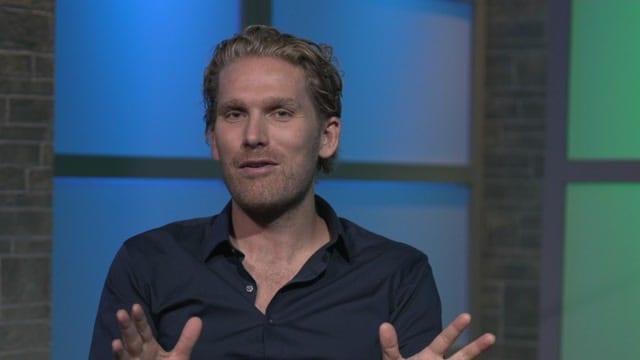
Rasmus Ankersen describes how parents are the most crucial factor in developing high performance kids.

GLS19 faculty member, Bear Grylls, shares a special message about what he hopes for this year’s Summit.
Join 405,000+ of your peers for two days of fresh, actionable and inspiring leadership training from a world-class faculty at a location near you. Super Early Bird Pricing for a limited time only.
*Faculty lineup subject to change
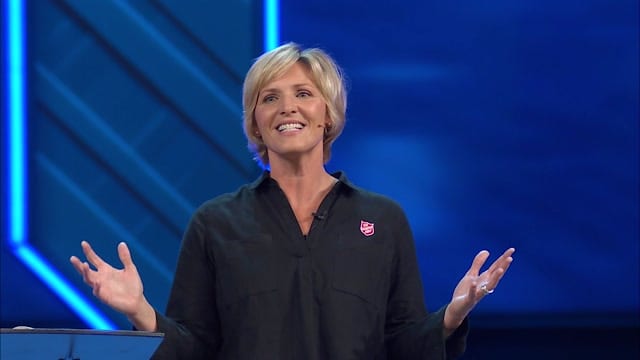
Danielle Strickland explains what it looks like for leaders who are called to battle against the injustices of this world.
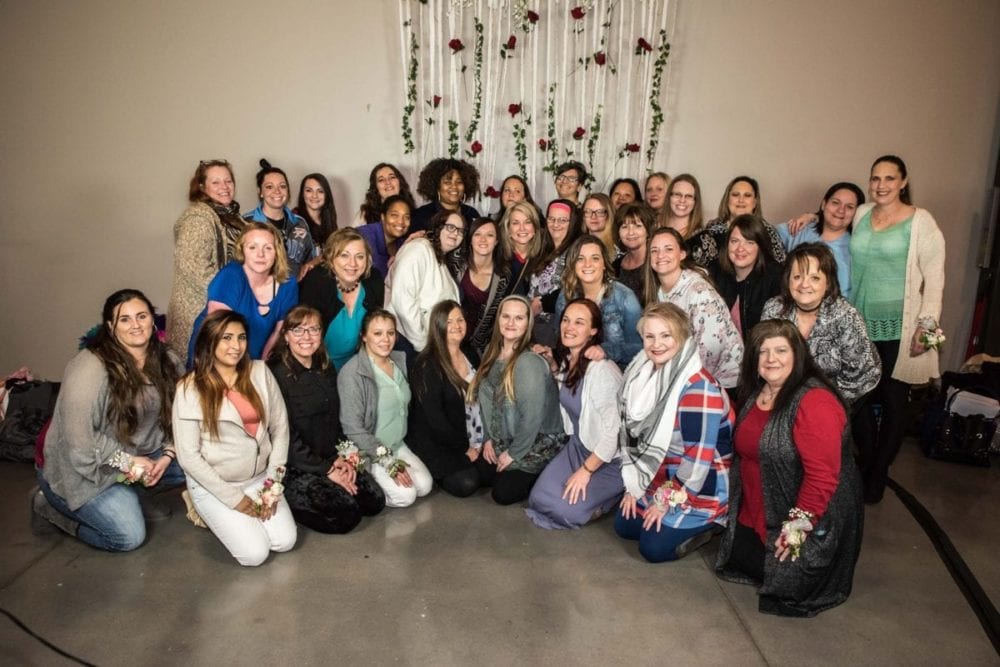
Craig and I love attending The Global Leadership Summit because of the way it stretches and sharpens our hearts and minds as servant-leaders and followers of Christ.
The first time I attended, I was a fairly young mom deep in the trenches of child-rearing and home educating. It was at the Summit where I identified my “holy discontent” or divine calling—to pursue discipling women in the faith. I soon began to watch and listen for the Holy Spirit to guide my next steps. The first step was teaching Bible studies, which years later led to leading our church’s women’s ministry.
While continuing to work with women, I became aware of something in my state of Oklahoma that broke my heart. God awakened me into a new personal season through the culmination of hearing several cultural activists speak. I learned that my state has been consistently number one in the world in the number of women who are incarcerated. I learned, as many now have, that many prostitutes are actually victims of human trafficking. I also grew in my understanding about our state’s substance abuse problem (methamphetamines in particular).
I learned that my state has been consistently number one in the world in the number of women who are incarcerated.
Taking this knowledge to God in prayer, I began to understand that people need help with fresh starts. If your past was filled with trauma, neglect and/or substance abuse, you’ll often need to learn new, healthy lifestyles and be surrounded with loving and supportive relationships committed to your future success.
As I sat in the Summit, my spirit was deeply moved. After one of the sessions, I grabbed a friend’s hand and all but ran out the doors. Bursting into tears, I began to express, as best as I could, the great prompting I received from the Holy Spirit. I knew I was to take another step of faith. I knew it involved women. I knew it was urgent. And so, I began to pray and take one small step of faith at a time.
 This step of faith led to the founding of the non-profit ministry Branch15 with a mission to provide Christ-centered transitional living with individualized care and support for women on their paths to recovery and independent, sustainable living.
This step of faith led to the founding of the non-profit ministry Branch15 with a mission to provide Christ-centered transitional living with individualized care and support for women on their paths to recovery and independent, sustainable living.
We accomplish this through offering a year-long personal growth program and providing “spiritual families” as mentors. Our dreams come true every time we see a client graduate, reunite with family (especially their children), and watch them thrive. A big thrill for me has been employing four former clients/graduates to join our Branch15 staff team.
Branch15 celebrated its five-year anniversary last October and we now have five homes (in the Oklahoma City area) with a total of 35 beds for our clients. Five years and counting, a continuously growing number of women have graduated from our program and been given fresh starts and renewed hope.
Branch15 is a direct result from one day—one moment—of attending the Summit.
Branch15 is a direct result from one day—one moment—of attending the Summit.
Regularly attending the Summit ensures that my leadership capacity is stretched, and it always instills a resilient courage in me not to give up but keep dreaming and reaching for excellence in all my God-given assignments.
Please join us and attend! It’s always good for the soul to get away from routines, be still and fill up!
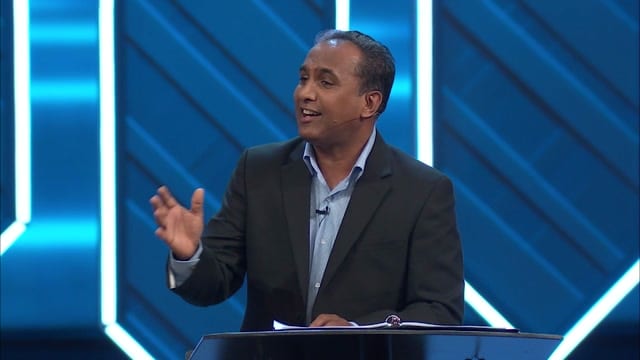
Jossy Chacko discusses the critical importance of empowering people to achieve an expanded vision.

It is such a thrill to welcome back multiple-time Global Leadership Summit faculty member and good friend Danielle Strickland to GLS19. Pastor, author and justice advocate, Danielle’s insightful teaching has marked us in significant ways. We recently had the chance to interview her on the GLS Podcast. Take a listen and see how her fascinating mind works!
We live in times of unprecedented change. As leaders, we often feel the tension of chaos and confusion. In this episode of the GLS Podcast, Danielle sits down with Jeff Lockyer to suggest a new way for leaders to view chaos—through the unlikely lens of the biblical account of creation.
Jeff Lockyer: In all of your travels, what are you noticing in the Church or in leadership in general? Are you sensing any trends? Are you seeing anything emerging?
Danielle Strickland: I’m blown away. All over the place, divisions—things that have held us back and kept us fighting against each other—they are coming down. There seems to be a new hope emerging for the possibilities of doing things a new way.
Jeff: Where do you think that’s coming from?
Danielle: We’re in massive shift. We got the printing press about 500 years ago, and it not only changed the way information was disseminated, but also the way power worked. It brought, at first, a real season of change and chaos. But also, incredible advances for humanity.
I think we are in one of those times again. We are in the greatest refugee crisis in history, which is bringing about a massive human migration on the earth. The internet changed not just how we disseminate information but also the way power works. And in the middle of all that shifting, changing, transitioning, there’s a desperation to pay attention to the things that matter. As leaders, we have an opportunity to bring hope in the midst of uncertainty.
Jeff: And that’s our topic for today—how to bring hope in chaotic and turbulent times. In light of all this chaos, you feel like there’s wisdom for us that surprisingly comes from the creation narrative in the Bible. Can you tell us how you first started to reflect on this?
Danielle: As a leader, I always had this idea that chaos was the enemy and order was king. Then, I had a season in my life when I was trying to do a church plant and establish safe housing in the downtown eastside of Vancouver—a drug addicted and dysfunctional neighborhood that was really defined by chaos. At the same time, I was working on a master’s degree in Leadership. So, I was learning all these leadership principles and being taught how to order things. And none of it worked in my context because it was so chaotic.
But what happened was that I became okay with not being in charge. And when I leaned into the chaos of that community, I began to see beautiful things happen.
So then, I started really looking into what is meant by order. I asked myself, “If God is orderly, in what way is He orderly?” And I went back to the very beginning because surely there would be some hints in the earliest creation account of how God works in bringing new things to be. And I found that God brings creative beauty in the midst of chaotic places.
Jeff: I’ve heard you say that everything stared with chaos. What strikes you about the fact that the creation narrative begins with chaos?
Danielle: For me, it was a game-changer because I had been taught that chaos was the enemy and God came in with order. But when I actually read the Hebrew story, there is this picture of the spirit of God hovering like a mother bird over chaos. Out of that place, there is giving birth to something beautiful.
I started to realize that we avoid chaos because we think it’s a threat. But what we end up avoiding are those places where God is waiting to bring beautiful things into being.
To listen to the complete interview with Danielle and Jeff, click on the link above. Or subscribe to the GLS Podcast, and every month, you will get episodes filled with great content like this delivered right to your smartphone.
Join 405,000+ of your peers for two days of fresh, actionable and inspiring leadership training from a world-class faculty at a location near you.
“We welcome and encourage comments on this site. There may be some instances where comments will need to be edited or removed, such as:
If you have any questions on the commenting policy, please let us know at heretoserve@globalleadership.org”
Recent Comments